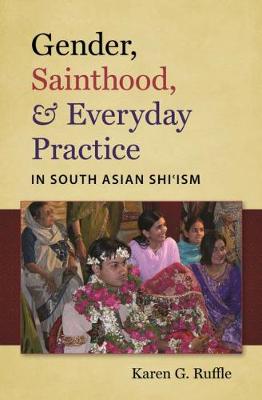In this study of devotional hagiographical texts and contemporary ritual performances of the Shi'a of Hyderabad, India, Karen Ruffle demonstrates how traditions of sainthood and localized cultural values shape gender roles. Ruffle focuses on the annual mourning assemblies held on 7 Muharram to commemorate the battlefield wedding of Fatimah Kubra and her warrior-bridegroom Qasem, who was martyred in 680 C.E. at the battle of Karbala, Iraq, before their marriage was consummated.
Ruffle argues that hagiography, an important textual tradition in Islam, plays a dynamic role in constructing the memory, piety, and social sensibilities of a Shi'i community. Through the Hyderabadi rituals that idealize and venerate Qasem, Fatimah Kubra, and the other heroes of Karbala, a distinct form of sainthood is produced. These saints, Ruffle explains, serve as socioethical role models and religious paragons whom Shi'i Muslims aim to imitate in their everyday lives, improving their personal religious practice and social selves. On a broader community level, Ruffle observes, such practices help generate and reinforce group identity, shared ethics, and gendered sensibilities. By putting gender and everyday practice at the center of her study, Ruffle challenges Shi'i patriarchal narratives that present only men as saints and brings to light typically overlooked women's religious practices.
- ISBN13 9780807834756
- Publish Date 7 July 2011
- Publish Status Out of Print
- Out of Print 13 June 2014
- Publish Country US
- Imprint The University of North Carolina Press
- Edition New edition
- Format Hardcover
- Pages 240
- Language English
